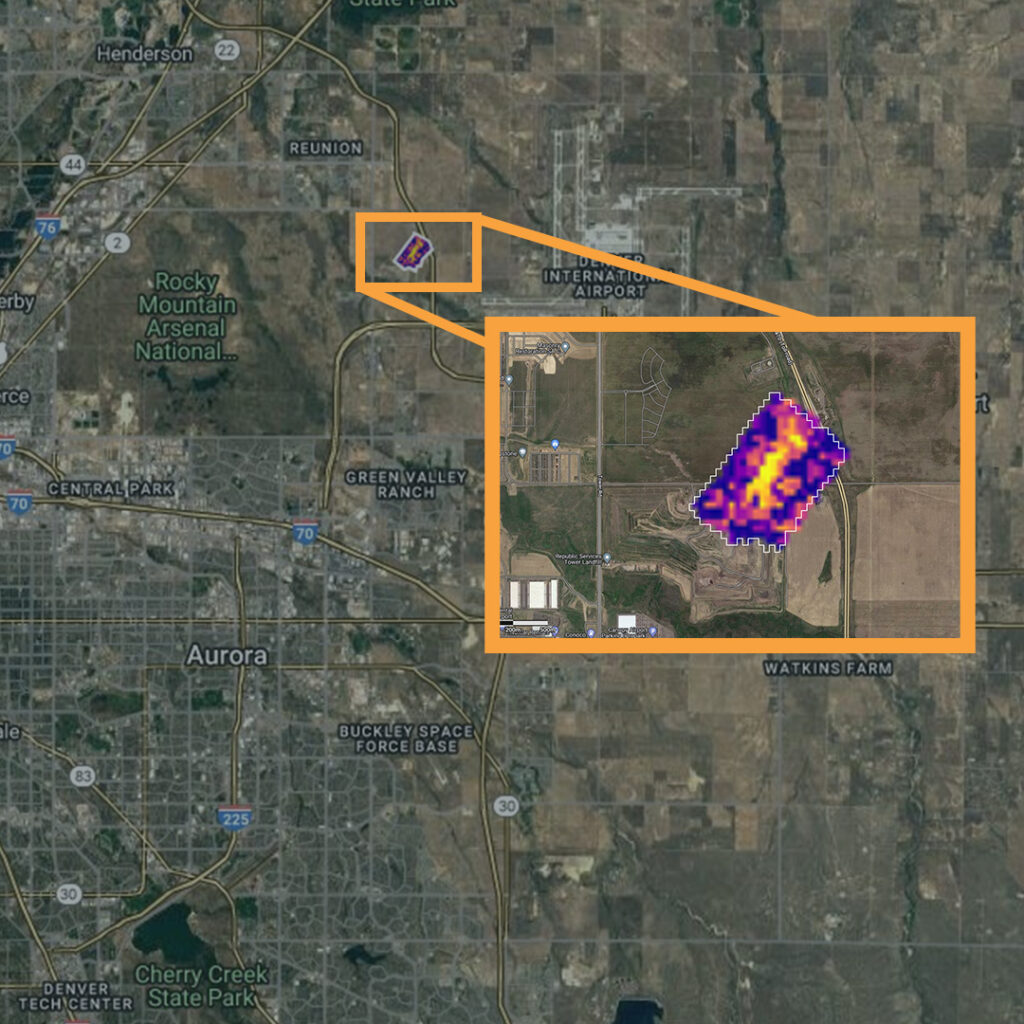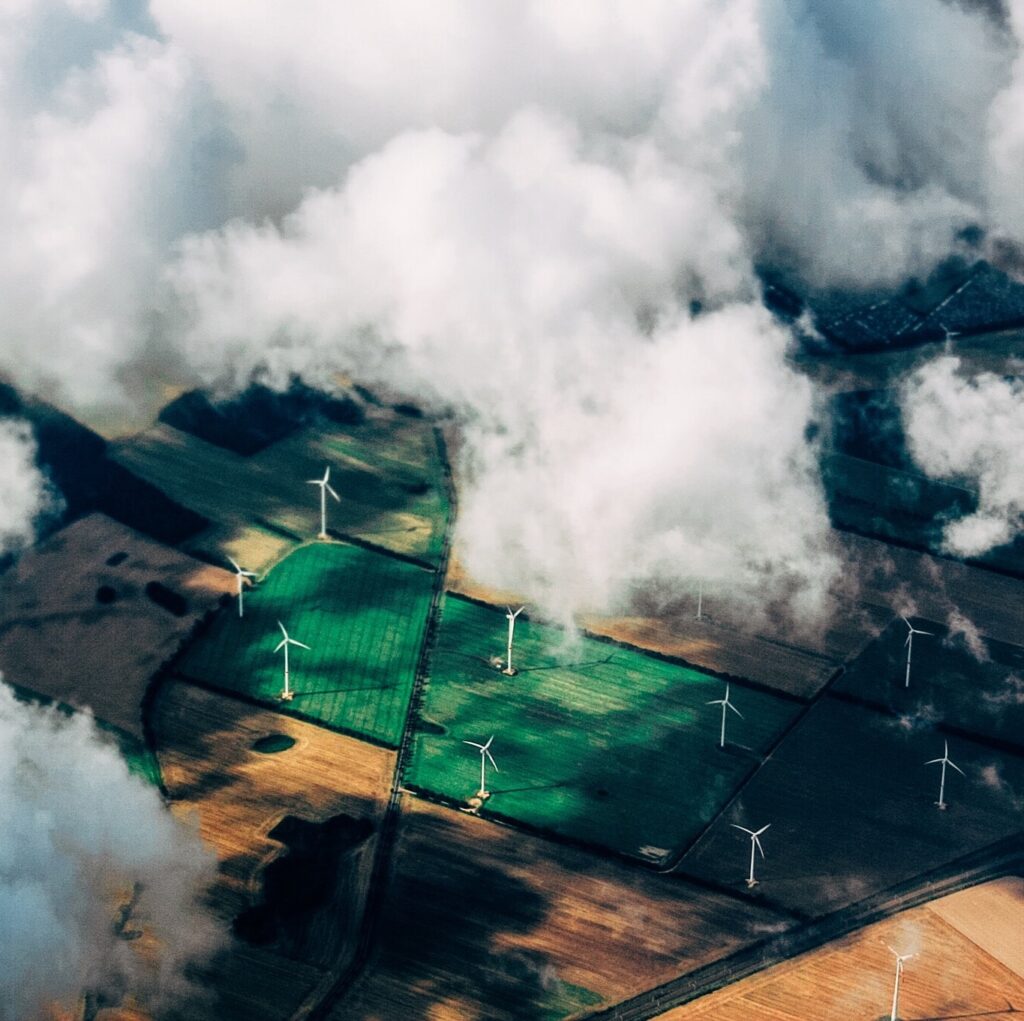Climate News Weekly Episode 132
December 18, 2023
Top Stories of 2023, including COP28 deal, methane tracking, climate risks, and more
In this Episode
For our last episode of Climate News Weekly this year, we’re reviewing the top climate space stories of 2023 according to our series regulars Julio Friedmann, Dina Cappiello, and Darren Hau. Climate Now Host James Lawler and Managing Producer Emma Crow-Willard moderate a conversation spanning the latest COP28 deal, new developments in methane regulation and tracking, the climate crises that struck the world, EV growth, and more. Thank you for joining us, and see you next year!
Related Media:


Climate Now: Jul 17, 2023
Tracking Methane Leaks for Planet and Profit
In September 2022, two pipelines carrying natural gas from Russia across the floor of the North Sea were sabotaged, rupturing and emitting an estimated 500,000 tons of the potent greenhouse gas methane (the primary component of natural gas) into the atmosphere


Climate News Weekly: Dec 11, 2023
COP28 coverage, including global health, carbon capture, and “phase out vs phase down”
Today in Climate News Weekly, we continue our coverage of COP28 with three people who each covered a different aspect of the conference. First, we speak with Julian Moore of Climatebase to discuss this COP’s focus on how climate change impacts global health,


Climate Now: Feb 22, 2022
Can We Achieve 100% Electric Car Sales by 2030?
What will it take to get 100% of new car sales to be electric by 2030? Is it consumer demand? Is it political pressure? How about we just increase both? The Zero Emission Transportation Association (ZETA) is the first industry-backed coalition advocating f


Climate Now: Jun 12, 2023
This Week in Climate News: Fires, national EV charging standards, and the global stocktake
This Week in Climate News: One of the greatest difficulties in addressing climate change has been how invisible the crisis was. You cannot see the 40 billion metric tons of CO2 being added to the atmosphere each year, or necessarily feel that average global


Climate News Weekly: Sep 25, 2023
Decarbonizing Heavy Industry, Europe’s Deadly Air Quality, Insurance at Risk, and more
From a new White House climate jobs training program that echoes the Civilian Conservation Corp of the FDR era, to UK’s Prime Minister Rishi Sunak rolling back carbon reduction targets, global leaders are taking a stance after the UN’s Climate Week in New
Episode Transcript
TRANSCRIPT
James Lawler: [00:00:00] Welcome to Climate News Weekly. Here we are in our last news weekly episode of the year. I’m joined by our full complement of co-hosts today, which is very exciting: Dina Cappiello, Julio Friedman, and Darren Hau, and also our managing producer, Emma Crow-Willard. Welcome guys.
Julio Friedmann: Always a pleasure.
Dina Cappiello: Great to be here.
James Lawler: We made it to the end of the year, and so we are going to talk about the biggest stories of 2023 according to our co-hosts today.
So without further ado, since two of our co-hosts, Dina and Julio, as everyone knows, are fresh back from COP, why not start with COP and the Dubai Consensus that was achieved this year? I will pass it first to Julio. Thoughts on that story? Why does it make our list of top stories for the year?
Julio Friedmann: As your listeners surely know, there was a lot of doubt going into this COP. Led by Dr. Sultan Al Jaber as head of ADNOC, as well as the presidency of the COP. There was a lot of questions about whether this would be [00:01:00] hijacked by lobbyists, et cetera.
The feeling on the ground was quite different and that proved out in the Dubai consensus, which is consequential. It is arguably, the most consequential outcome of one of the COP meetings since the Paris Agreement in 2015. The agreement includes language to transition away from fossil fuels. This was hard fought, hard won language, and it was done on the ground by Dr. Sultan.
He actually went through the meetings, he had a lot of bilateral agreements, it was something he said he would try to do and delivered. There were a great number of deals that were arranged in advance that were delivered there in the Dubai consensus, tripling of renewable power, a doubling of energy efficiency, and then a focus on a lot of different technologies, including offshore wind, including nuclear, including carbon capture, clean fuels, green hydrogen, all of these things were part of the formal proceedings that came out of the COP.
And I think that it demonstrates actually [00:02:00] how a workman-like sensibility, how a desire to build compromise delivers something of consequence to the world, whether it happens inside the negotiating room or adjacent to it.
James Lawler: So can I ask a- just quick question on that for the historic language about the transition away from fossil fuels- why that particular set of words, and why was that ultimately something that oil and gas producers agreed to?
Dina Cappiello: This is a big part of the debate, really, I think, why the, why the negotiations went slightly into overtime. The debate was over phase out, phase down, phase out of unabated fossil fuels, right?
There was a lot of different terms that were put in there. And then ultimately, Canada was the one to kind of hold the pen and figure out something that the 200 countries could agree to. Listen, I think transition away, because in this particular case, I think it’s super significant. This is the first time in 30 years that an [00:03:00] agreement has tackled head-on the major culprit of fossil fuel emissions or fossil fuels themselves. I think that the reason why “transition away” worked for the petrostates that were in the room, for the U. S., right? Which was proposing not a complete phase out because we are the largest oil and gas producer in the world, was because there is some wiggle room.
It recognizes that it wasn’t bound. There wasn’t a time limit put on it. And we know that there are going to be certain geographies that are going to phase down, transition away from fossil fuels in a different time frame. And we know that some heavy industries are going to be dependent on them for a while because of technologies that don’t exist today.
James Lawler: Any thoughts on that, Julio?
Julio Friedmann: Absolutely. First of all, it was just a way to get out of this phase out versus phase down trap. That was a rhetorical trap that was going nowhere. If you look at the one and a half degree scenarios, [00:04:00] they all phase down, they eventually phase out. But even in 2050, there’s still a lot of fossil fuels, which is again, one of the things that was a topic of discussion early on.
And so “transition away from” is a way to capture all of those sensibilities in one term, which is proving helpful. It also is an acknowledgement by countries as diverse as Brazil and Russia and Saudi Arabia that they know their plan must include a transition away from fossil fuels, and they already knew that.
So they were able to acknowledge that without seeding the idea that their future was over and that it was actually, I think, consequential again.
James Lawler: Awesome. Another story that I think is on all of our list is that the Inflation Reduction Act turned one year old this year. And I’ll quote from actually, you know, one of your experts, Aaron Brickman from RMI, who said, “What has taken place as a result of and since the Inflation Reduction Act can simply not be overstated. The United States is [00:05:00] effectively now the most attractive destination for global capital in clean energy and clean tech”.
Very strong statement. And Canary Media has counted more than 100 new clean tech manufacturing announcements and nearly 80 billion in private investment as a result of the Inflation Reduction Act.
So this is, you know, by any metrics, massive and historic.
Dina Cappiello: Just to add to that, in 2023 alone, the IRA led to $372 billion in new private clean energy investments, more than 211,000 new clean energy jobs, and almost 50,000 new manufacturing jobs. And I think the impact to-date, and, and we’ve done a lot of analysis on this at RMI, but I think one of the interesting things is this benefits everyone.
So the impact so far has been weighted toward traditionally Republican states in the U.S. And that’s significant. These are states that have not supported climate policies in the past. And make no mistake about this, although it’s the [00:06:00] Inflation Reduction Act, this is a major climate bill that depends on carrots, not sticks.
James Lawler: Let’s go to an EV story. Darren, you’ve been tracking the EV space. Tell us about the biggest stories on your list for 2023.
Darren Hau: Yeah, absolutely. Obviously, the IRA had a lot of impact, not just in the U. S., but globally. I think maybe the story of 2023 was that EV expectations hit reality, and I don’t say that in necessarily a negative way, but a lot of the folks who got a lot of attention about, you know, publicizing their plans and setting really big pledges basically realized, “hey, this transition is going to be difficult, and what are we going to do to navigate that?”.
So one example of that is the mass automaker adoption of Tesla’s NAC standard. That was just really major news that hit us in late spring, early summer. Really instigated by Ford and then GM saying that they would adopt, uh, the Tesla charging standard. The reason why this is really big is because charging is one of the major [00:07:00] reasons why people hesitate to buy EVs.
It’s tied intimately at the end of the day with range, right? Uh, if you don’t feel like you can go as far and be as flexible and as carefree with your EV as you are with your gas vehicle, then that is just going to give you pause. Even if most of the time your vehicle is okay, uh, and you can get to where you want to be, for those two trips a year where you need to go visit grandma in another state, you know, if you feel like you can’t charge, you’re going to hesitate to pull that, pull that trigger.
So what we’ve seen in the, you know, industry is that the third-party non-Tesla charging networks, um, are, you know, there’s a lot of ambitious goals and they should be commended, but fundamentally, the reliability and the coverage has not been there. And Tesla has been the party that has gotten a very performant network, uh, boosted by, of course, heavy investment in both infrastructure as well as a team that goes and supports the reliability of this infrastructure.
And lastly, [00:08:00] the fundamental design of the connector is simpler and less breakage-prone than the alternative standard called the combined charging standard or CCS 1. More broadly, again, going back to EV expectations hitting reality, there’s been a lot of chatter over the last few months about the general EV slowdown.
Maybe people don’t want EVs as much. Maybe EVs are retrenching in their adoption. Well, there’s a lot of nuance behind the clickbait. First of all, EV growth is super strong. It’s not a matter of whether EVs are slowing down, they’re just slowing down in their growth rate. So I believe the growth rate is still over 50 percent compared to last year, which for any industry would be absolutely bonkers.
Emma Crow-Willard: Let’s move on maybe to climate risks. What’s been going on? What are some of the bigger risks that we’ve been seeing in 2023?
Dina Cappiello: I mean, this almost was like, you know, I’m not trying to overstate this. This was like the year of climate disasters, right? Where, like, we had [00:09:00] massive fires, we had the Mexico hurricane that, like, came out of nowhere, fueled by warm ocean temperatures.
We had floods in places we hadn’t seen floods. This is global, right? And I think that it really puts, you know, a fine point on the risks for everyone, I think it’s something that continues. It’s the hottest year on record. We’re going to continue to see changes in our climate that are, that are hard to ignore and and impossible not to link to climate change.
Julio Friedmann: I’m sorry to say that we’re going to keep seeing more of this. Despite things like the IEA’s 1.5 net zero scenario, despite pronouncements that we will peak oil and gas this decade, the UN and the International Energy Agency have both said that emissions will continue to rise in the near future and through- about 9 percent growth between now and 2030.
That means that it will continue to be very warm for a long time. It is the hottest year on record of all time, [00:10:00] but we’re going to see more floods and they will be around the world. Maybe we won’t have wildfires in Canada the way that we had this year, but we might have them in Indonesia. We’ll just have to see.
And we may not have droughts in the southeast United States, but we may have droughts in India. All of these things will continue to manifest and hopefully provide fuel for the urgency to pivot, to reduce, to remove.
Darren Hau: Yeah, it definitely is something that will hit closer to home for all of us, literally, obviously, it’s not as bad as someone who actually loses their home to a fire or a flood, but you know, my family just had their insurance company say that they will not renew insurance because of potential risk entries around the area.
So either your insurance may not get renewed or the premiums will go up significantly and everyone’s trying to figure out how to deal with this.
Emma Crow-Willard: Yeah. Yeah. That’s one of the scarier things.
I feel like 2023 was kind of an inflection point [00:11:00] for climate change. I feel like way more people are feeling it now and seeing it directly.
Julio Friedmann: I remain optimistic about our trajectory, but it’s important to balance that optimism with a clear-eyed understanding of exactly where we’re at and exactly how bad it is. So as always, I’m glass three quarters full. We got to recognize just how hard this is going to be.
James Lawler: Let’s move to another major story this year: methane.
So COP28 Methane Pledge, and what exactly this means and why it’s a big deal. You know, methane is a far more potent greenhouse gas than carbon dioxide, although it does have a shorter life in the atmosphere once it is released. So the amount of methane that we have released is probably responsible for something like 20-30 percent of the global warming that we’re experiencing.
So if we can solve that problem, that would be a huge win. So where are we in terms of a solution? Julio and Dina?
Julio Friedmann: Methane was a national and [00:12:00] international story all year long. Included things like the EPA’s draft methane regulations. It included things like the European Enion saying that imported oil and gas would be weighed on its methane content, as well as on the carbon content of the oil.
There’s a whole bunch of things that were around this. One of the things that came out of the COP though, was this methane pledge and it shows, first of all, I think 150 nations have now said that they are going to have a deep abatement and rapid action on their methane emissions. It also included, I believe, 50 major oil and gas companies, who said that they were going to reduce their methane emissions profoundly by 2025.
That is not a far-off pledge. That is a near-term pledge. And in doing so, as you said, James, because methane is short lived in the atmosphere, the climate benefits will be manifest quickly.
Dina Cappiello: Totally agree with Julio here that this was, like, the methane [00:13:00] moment.
Tricky thing about methane that’s always kind of befuddled me is that we know how to harness this pollutant. It’s cheap, the technology is there, and yet we haven’t kind of wrapped our arms around it until now. And so the EPA rule deals with oil and gas wells that are new and existing, a huge step forward that’s on public land.
Obviously, the companies pledging at COP, the 50 companies, will deal with wells, regardless of where they are. And then I also want t0- there was a $40 million initiative announced at COP by Bloomberg, the use of satellites to boost transparency of methane.
We also know that it’s, that’s, it’s vastly underreported, and there is a lot of satellite technology that’s helping figure out where these big methane plumes are globally. And that was also a really big message at COP. It’s a big year for methane. And I think there’s going to be a lot of effort [00:14:00] post-COP into 2024 to make sure that these commitments are met, um, because we have the tools to hold folks accountable.
Julio Friedmann: We have seen a huge amount of progress this year, a bunch of big wins.
So I’m looking forward to having two glasses of champagne at New Year’s instead of one.
James Lawler: Amen to that.
Emma Crow-Willard: That’s a great way to end. Well that’s it for Climate News Weekly, the 2023 Climate News Recap. We will see you guys again in 2024.
James Lawler: Climate Now is made possible in part by our science partners like the Livermore Lab Foundation. The Livermore Lab Foundation supports climate research and carbon cleanup initiatives at the Lawrence Livermore National Lab, which is a Department of Energy applied science and research facility. More information on the Foundation’s climate work can be found at livermorelabfoundation.org.[00:15:00]